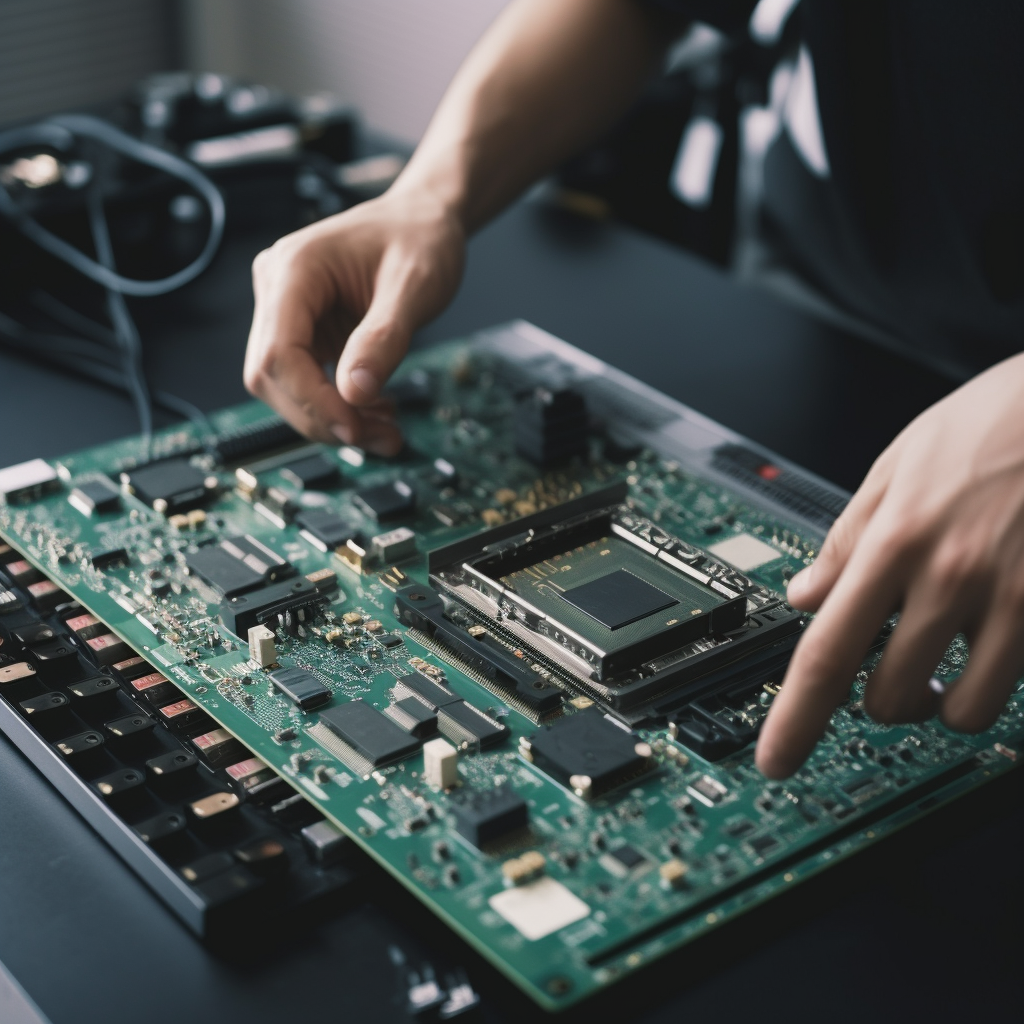Your shopping cart is empty!
MENU
- +
- Laptop Batteries +
- Laptop AC Adapter Charger +
-
Special+
Special Offers
- +

For many laptop users, upgrading their device's processor can seem like a daunting task. However, with the right information and some technical know-how, it is possible to boost your laptop's performance by upgrading its CPU. In this comprehensive guide, we'll delve into the world of notebook processor upgrades, exploring how to choose the right CPU, the installation process, and the benefits and limitations of these upgrades. Additionally, we'll provide real-world examples to demonstrate the impact of upgrading your laptop's processor on its speed and responsiveness.
1: Understanding Notebook Processors
1.1 What is a CPU?
A Central Processing Unit (CPU), also known as a processor, is the primary component of a computer responsible for executing instructions and performing calculations. In a laptop, the CPU plays a crucial role in determining the overall performance, speed, and responsiveness of the device.
1.2 Laptop CPU Types
There are two main types of laptop CPUs: soldered and socketed. Soldered CPUs are permanently attached to the laptop's motherboard, while socketed CPUs can be removed and replaced. The majority of modern laptops feature soldered CPUs, making processor upgrades challenging or even impossible.
1.3 Laptop CPU Manufacturers
The two primary manufacturers of laptop CPUs are Intel and AMD. Both companies offer a wide range of processors catering to various performance levels and budgets. When considering a CPU upgrade, it's essential to select a compatible processor from one of these manufacturers.
2: Choosing the Right CPU for Your Laptop
2.1 Compatibility
Before attempting a CPU upgrade, verify that your laptop features a socketed processor and supports the desired CPU. Consult your laptop's documentation, manufacturer's website, or online forums to determine compatibility.
2.2 Performance Needs
Consider your laptop's intended usage and the performance improvements you seek. Upgrading to a CPU with more cores or a higher clock speed can improve multitasking, gaming, and processor-intensive tasks like video editing or 3D rendering.
2.3 Budget
Budget constraints play a significant role in determining the right CPU upgrade. Higher-end processors may offer improved performance, but they also come with a heftier price tag. Keep your budget in mind while selecting the optimal CPU upgrade.
3: The Benefits and Limitations of Notebook Processor Upgrades
3.1 Benefits of Upgrading Your Laptop's Processor
Improved performance: A faster CPU can boost your laptop's speed, responsiveness, and multitasking capabilities.
Enhanced gaming experience: Some games benefit from higher clock speeds and additional CPU cores, resulting in smoother gameplay.
Future-proofing: Upgrading your processor can extend your laptop's lifespan, delaying the need for a complete system replacement.
3.2 Limitations of Upgrading Your Laptop's Processor
Compatibility issues: Many modern laptops feature soldered CPUs, making upgrades challenging or impossible.
Cost: High-end processors can be expensive, and the cost of the upgrade may outweigh the performance benefits.
Risk of damage: Upgrading a laptop's processor can be a complex process, and improper installation can lead to permanent damage.
4: How to Safely Install a New Notebook Processor
4.1 Prepare Your Workspace
Ensure you have a clean, well-lit workspace with the necessary tools, such as a screwdriver, thermal paste, and an anti-static wristband.
4.2 Disassemble Your Laptop
Carefully disassemble your laptop, following the manufacturer's guidelines and making note of screw placements and cable connections. You may need to remove the laptop's keyboard, bottom cover, and cooling system to access the CPU.
4.3 Remove the Old CPU
Gently release the CPU locking mechanism and remove the old processor from its socket. Becareful not to bend or damage any pins.
4.4 Install the New CPU
Align the new CPU with the socket, ensuring the notches and pins match up correctly. Gently press the processor into place and secure the locking mechanism.
4.5 Reapply Thermal Paste and Reassemble
Clean off any old thermal paste from the CPU and cooling system, then apply a new layer of thermal paste to the processor. Reassemble the laptop, following the reverse order of disassembly.
4.6 Test Your Laptop
Power on your laptop and check the system settings or BIOS to confirm the new processor is recognized. Monitor temperatures and performance to ensure the upgrade was successful.
Conclusion
Upgrading your laptop's processor can provide significant performance improvements in some cases. However, it's essential to consider the compatibility, costs, and potential risks associated with a CPU upgrade. By understanding the benefits and limitations of notebook processor upgrades and following the proper installation procedures, you can enhance your laptop's performance and extend its lifespan.